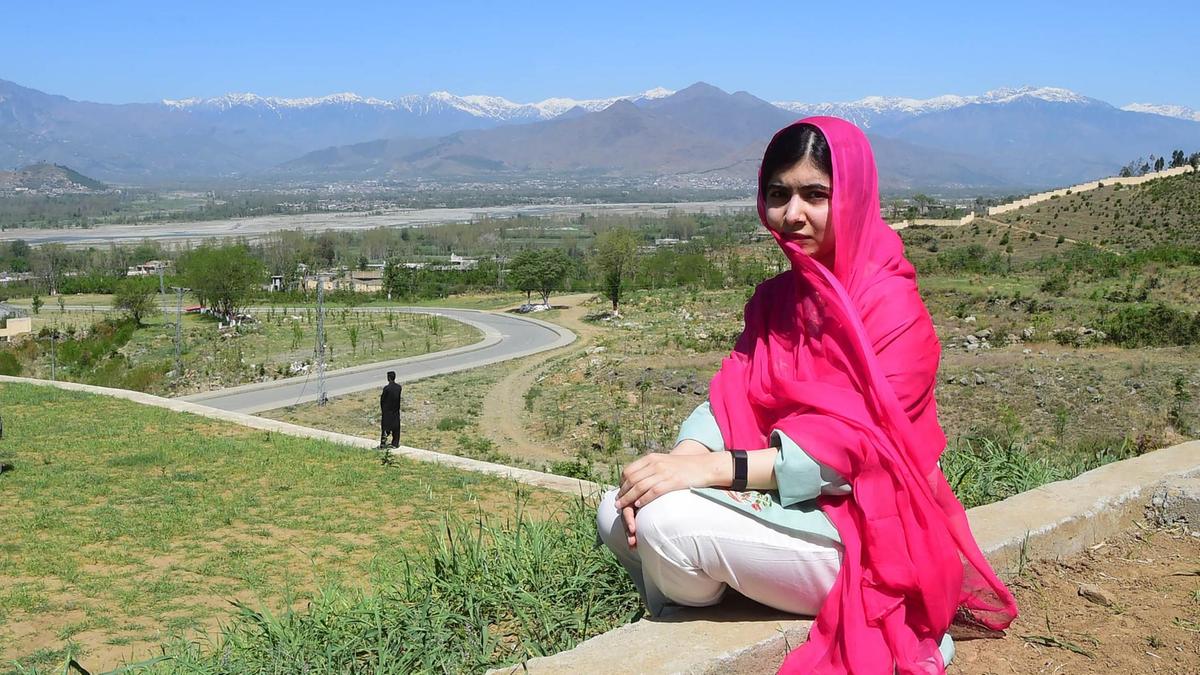
One of Pakistan’s two Nobel Laureates and an icon for young Pakistanis, Malala Yousafzai, returned to her hometown last week. However, instead of welcoming her, there were many who spoke out against her, her calls for tolerance and moderation, and saw her return as some foreign conspiracy.
As Raza Rumi wrote in The Daily Times: “The return of the Nobel Laureate and brave Pakistani icon Malala Yousafzai to her homeland is a matter of pride. The Pakistani state can rightfully take the credit that successful counter-terror operations in places like Swat have reduced the threat of violence by militias linked to the Pakistani Taliban. It was encouraging that the Prime Minister and his colleagues in the federal cabinet celebrated the event and honoured the young woman who, in real terms, has been Pakistan’s best global ambassador — courageous, resilient and focused on education.”
As Asad Hashim argues in his piece titled ‘The Shape of Hate’: “Malala Yousafzai represents everything that the patriarchy cannot allow to exist: a woman who refuses to be silenced. A person who consistently fights for her gender’s rights, and who, after an attempt was made to kill her, continued to raise her voice. Consider the others Pakistani society has vilified in the way it does Yousafzai. Mukhtaran Mai, the survivor of a community-ordered gang rape, was another woman who refused to be passive, in the face of being subjected to truly horrific violence. In return, society tore her to shreds, placing the responsibility of the violence done to her on her own shoulders, justifying it and demanding her silence.”
Further: “What is the greatest crime Yousafzai is accused of? Of being a Western ‘agent’, of being a myth created to malign Pakistan and to denigrate its values. She is celebrated at the United Nations, wins a Nobel Peace Prize, and rubs shoulders with world leaders. Any room she walks into, anywhere in the world, she is instantly the centre of attention, a universal symbol of all that is good in the world. That she is as loved as she is explains, perhaps, that she is as hated, too. To those who consider the West to be a malicious player in the region, it immediately rankles. The criticism of Yousafzai seems aligned with a rabid, xenophobic nationalism that abhors dissent. It jumps quickly from ‘she brings shame to Pakistan’ to ‘she hates Pakistan’s nuclear weapon’ to ‘she criticises Pakistan’s military’.”
As Rumi argues: “Malala haters promote the following critique: she has not achieved anything significant to earn the global acclaim; and her international promotion as a symbol of resistance for girls’ education and rights is a ‘conspiracy’ to defame Pakistan and Islam which in the popular conservative opinion — set no less by the state itself for decades — are interchangeable. The attack on Malala has also been subtly justified as a reaction against the US occupation of Afghanistan and the drone strikes that take place. Even Imran Khan said something to this effect back in 2013. Critics also hold that Malala ran away from Pakistan while other victims of terrorism are still in the country. The most oft-cited comparison is with some of the survivors of 2014 attack on an Army public school (APS) in Peshawar. This misplaced critique also echoes what the state has been doing since the attack. First, the narrative that those who die in cold-blooded murderous offensives are somehow giving ‘sacrifices’ for the country. This is why parents of the APS were awarded medals; as if they had sent their children to war. Somehow facing bullets at the hands of terrorists — and if you are lucky to survive, risking your life again — is akin to nationalism. This is as warped as celebrating victims of murder as patriotic heroes.”
Finally, “At the heart of this problem remains the ongoing ideological battle within Pakistan. Even though the military has changed its line in recent years and the politicians are more circumspect about glorifying militants, decades of propaganda about jihad has influenced millions. As Malala’s diaries as a teenager in Swat show: her activism even before she was shot was clearly anti-Taliban. The progressive Pashtuns, unlike rest of the country, do not distinguish between the good and the bad Taliban — a distinction that much of the rest of Pakistan has accepted. In fact, for those who identify with this latter view, the Afghan Taliban are resistance fighters and, not to forget, valuable for Pakistan’s strategic influence in Western and Southern Asia. This is why the ones who try to kill a schoolgirl may not be as bad as someone who gets shot and tries to rebuild her life in a most constructive and glorious manner. There is widespread brutalisation of the mind that finds it ‘normal’ to attack and depreciate a victim of horrendous violence. And sadly, many young Pakistanis display this tendency when they regurgitate lies and disinformation about Malala on social media.”
![]()





